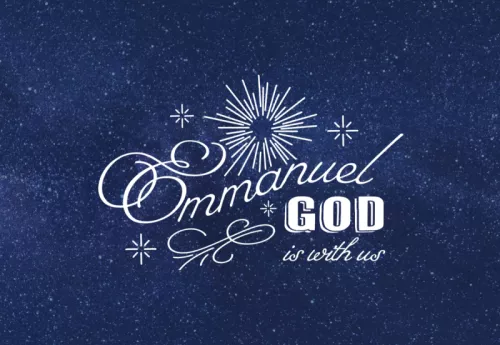I recently read about a fascinating practice called Buhfai Tham, which takes place in Mizoram, north-east India.
In this incredibly poor Indian state, each family puts aside a handful of rice every time they prepare a meal, which is then gathered together and resold by the church to fund local Christian ministry work.
What struck me most is the faithful obedience of the Mizo people, in that, despite living in abject poverty, they give selflessly and creatively to God’s work every day – one handful of rice at a time.
At this time of year, we are all inevitably thinking about giving. As we scour the shops looking for the perfect Christmas gifts for family and friends, it can be easy to overlook the significance of giving as part of our relationship with God.
Christmas is the time to celebrate God’s eternal promise to us. He gave us the ultimate gift through His son Jesus Christ (John 3:16), whose death, resurrection and ascension has enabled us to become children of God. At Christmas we remember that Emmanuel has come, that God is with us. And that changes how we give.
Our giving, when carried out in a joyful, willing and sacrificial manner, is an affirmation of how much we value this relationship with our present God. It’s a demonstration of our love, obedience and commitment to our Father. It’s the ultimate act of worship.
The Bible testifies to giving as worship. I’m sure we all know the story of the widow’s mite (Mark 12:41 – 44). One day, Jesus is with His disciples near the temple treasury watching people give their offerings. While the rich contribute large sums of money, along comes a widow with two small coins in her hand. As she places everything she has into the offering box, Jesus exclaims, “Truly I tell you, this poor widow has put more into the treasury than all the others.”
The obedience and generosity of the poor widow in first-century Palestine mirrors that of the Mizo women in 21st-century India: both honour and worship God through their sacrificial giving. She understood that because God was present, she could trust Him with her money, with her wellbeing and offer her act of worship.
It’s not enough just to acknowledge this, however. Instead, we must think about how we, as fellow children of God, can follow their example. How can we replicate their obedient, selfless and generous giving in our own lives and in our local communities?
We can choose to give in many different ways. We can give our time by volunteering at our local food-bank. We can give our resources by cooking a meal for our local homeless shelter. Or we can give some of our finances by donating to a charity close to our heart.
This is not to say that giving is always easy. Often, when we find we don’t have much money left at the end of the month or life becomes especially busy, it can be difficult to think about giving sacrificially. In fact, giving might not even cross our minds.
Yet, if it’s possible for the poor widow of ancient Palestine and the women of modern-day Mizoram, for whom making ends meet is a daily struggle, then surely it’s also possible for us today?
In Matthew, it is said: ”So do not worry, saying, ’What shall we eat?’ or ’What shall we drink?’ or ’What shall we wear?’ … But seek first His kingdom and His righteousness, and all these things will be given to you as well“ (6: 31 – 33).
Instead of worrying about our everyday needs, we must learn to come to God, trusting in the promise that He is in control and will always provide for us. When we do this, we are filled with His peace and grace, and freed from our fears. Giving becomes a joyful experience, an expression of our love and obedience, and an act of worship to our Father who has promised to be with us always.
And even if we can only spare a little, what matters most to God is that we are giving sacrificially with a generous and obedient heart – one handful of rice at a time.
As the well-known Bible verse says: ”Each one must give as he has decided in his heart, not reluctantly or under compulsion, for God loves a cheerful giver” (2 Corinthians 9:7).
During Advent, we’re exploring‘Emmanuel, God is with us’ — how the presence of God shapes the work that the Evangelical Alliance cares so passionately about: mission and crossing cultures, reaching young adults, public leadership, public policy, and how this is all made possible by the generosity of the church. We hope that you’ll join us and in this Christmas celebration as we look forward to more of God with us in the year ahead.




